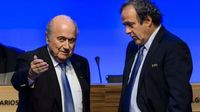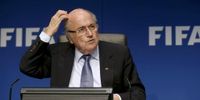On March 26, 2025, former FIFA president Joseph Blatter and former UEFA president Michel Platini were acquitted by a Swiss court of fraud charges that had cast a shadow over their careers for years. The court's ruling confirmed a previous decision made in the summer of 2022, where both men were found not guilty in the first instance. This latest verdict marks the end of a long legal battle that has involved accusations of financial misconduct, misappropriation of funds, and document forgery.
The investigation centered around a payment of 2.3 million US dollars from FIFA's budget to UEFA, which prosecutors alleged was part of a scheme to defraud. Swiss prosecutors accused Blatter and Platini of bribery related to this payment, which was transferred in February 2011 when Blatter was still serving as FIFA president. However, both men have consistently denied any wrongdoing, asserting that the payment was a delayed compensation for consulting services that Platini provided to FIFA between 1998 and 2002.
In a statement following the acquittal, Platini expressed relief and a sense of vindication, declaring, "My honor has been restored. The fight between FIFA and some Swiss federal prosecutors has ended after the last 10 years." He further elaborated that those around him never believed he was guilty, emphasizing that the legal action was intended to thwart his ambitions of becoming FIFA president. Platini remarked, "I know that my enemies didn't care about the 2 million involved. They wanted to keep me away from my job for 10 years."
The case's origins trace back to a payment that Platini claimed was made after FIFA lacked sufficient funds to pay him his consulting fee on time. This delay in payment was highlighted by Platini as a reason why the transfer occurred years later. The prosecution had sought a conditional sentence of 1 year and 8 months for both Blatter and Platini, but the court ultimately ruled in their favor, stating that the evidence did not support the fraud allegations.
For Blatter, this acquittal is particularly significant as it reinstates his reputation after a tumultuous period marked by scandal and controversy within FIFA. He has also maintained his innocence throughout the proceedings, arguing that the payments were agreed upon for legitimate consulting services. The court's decision has, in many ways, cleared his name, allowing him to step out of the shadows of a decade-long investigation.
Despite the acquittal, the case has left a lasting impact on the governance of football and the reputations of both men. The allegations against them were part of a broader scrutiny of FIFA and UEFA during a time when both organizations faced intense criticism over their financial practices and governance structures. The fallout from the case has raised questions about transparency and accountability in sports administration.
As the dust settles from this legal battle, both Blatter and Platini are left to contemplate their legacies in the world of football. The acquittal may allow them to re-enter the public sphere, but the controversies surrounding their tenures will likely linger. Platini's aspirations for FIFA presidency were notably derailed by the allegations, and it remains to be seen how this ruling will influence his future endeavors.
In addition to the legal ramifications, the case has also sparked discussions about the need for reform within football's governing bodies. Many have called for greater oversight and more stringent regulations to prevent such situations from arising in the future. The integrity of football administration is crucial for maintaining trust among fans, players, and stakeholders alike.
As for the broader implications, the acquittal of Blatter and Platini may signal a turning point in the relationship between sports organizations and law enforcement. With increasing scrutiny on financial dealings and governance in sports, the outcomes of such high-profile cases could set precedents for how future allegations are handled.
In conclusion, the acquittal of Joseph Blatter and Michel Platini marks a significant chapter in the ongoing saga of football governance. While their legal troubles may have ended, the discussions surrounding the integrity of sports administration and the need for accountability will undoubtedly continue.






